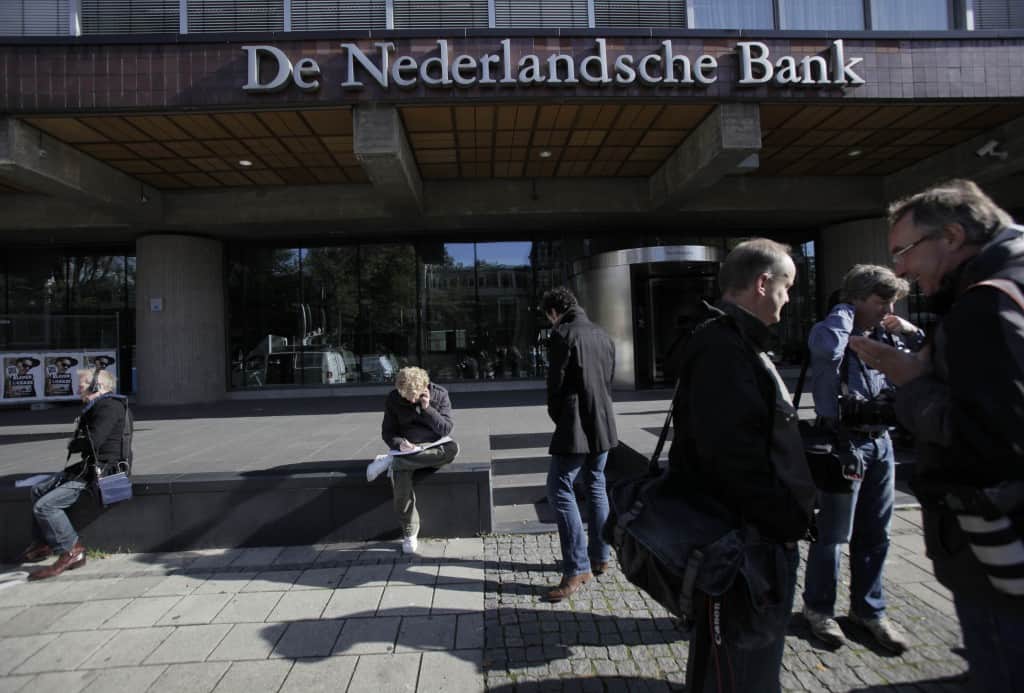Join Our Telegram channel to stay up to date on breaking news coverage
The Dutch cryptocurrency industry has become the poster child for rebellion against authorities. Players in this country have gained notoriety for not taking it lightly to developments that might hamper them. However, that stance might be thawing as a top exchange recently consented to the government’s regulations over user data.
Everyone Should Fall in Line
Earlier this week, Bitonic, a Dutch crypto exchange, announced to its users that it would be complying with a ruling from the Dutch National Bank (DNB) on user identification. The legislation stipulates that exchanges should check to ensure that none of their users or fund beneficiaries are on any sanctions list, essentially making them responsible for reviewing all transactions.
As Bitonic explained, customers will need to provide additional details about their wallets before accessing its services. Customers would also need to verify that they are the “legitimate” controllers of the Bitcoin addresses they use to make withdrawals on the platform. To do that, they have to either sign a message or provide screenshots from the wallets in question.
The exchange took time to express its displeasure at the new measures. In the release, it explained that they are a “nuisance,” and it doesn’t agree with them.
“We have repeatedly pleaded with DNB to drop this requirement as we find this measure to be ineffective and disproportionate. Unfortunately, this has had no effect. The Netherlands is currently the only country in the European Union where this far-reaching measure is demanded,” it highlighted.
Crypto journalist Aaron van Wirdum agreed with the exchange. In a tweet on the matter, he emphasized that no other European nation had set such stringent regulations on their customers.
As imposed by the Dutch central bank (@DNB_NL), Bitcoin exchanges in The Netherlands must now ask their customers to "prove" they really control their withdrawal address. No other European country requires this.
Via @Bitonic: https://t.co/UEtVJD3e5z. pic.twitter.com/Nbsa9usSWF
— Aaron van Wirdum (@AaronvanW) November 17, 2020
It remains unclear whether other exchanges in the country have agreed to these new measures. However, with Bitonic reluctantly agreeing, there’s every indication that others would fall in line eventually.
The Dutch Crypto Stronghold
It is a somewhat surprising move from the Netherlands, whose crypto companies have been vocal about the increasing level of oversight. Last year, many of them banded together against the regulators. Crypto companies had voiced out against the Dutch Ministry of Finance (FIN) and the DNB. This was due to the DNB’s adoption of the notorious Fifth Anti-Money Laundering Directive (AMLD5).
Enacted in 2018, the AMLD5 rules that crypto firms should pay for their supervision costs and register with their respective jurisdictions. In a letter sent to the Dutch Parliament, Daan Kleiman, Bitonic’s CEO – and the Chairperson of crypto regulatory agency VBNL, called for these rules to be abolished.
Representing several industry players, Kleiman argued that these rules were an advanced form of illegal licensing. He pointed out that the FIN and DNB had gone ahead to enforce the regulations without notifying the Parliament about the regulation’s requirements and how they expected to implement them.
Derbit, one of the Netherlands’ top exchanges, also hinted that they could leave the country if the AMLD5’s KYC/AML requirements were enforced. This eventually kickstarted what was a continent-wide opposition to the AMLD5 and its components.
Join Our Telegram channel to stay up to date on breaking news coverage


